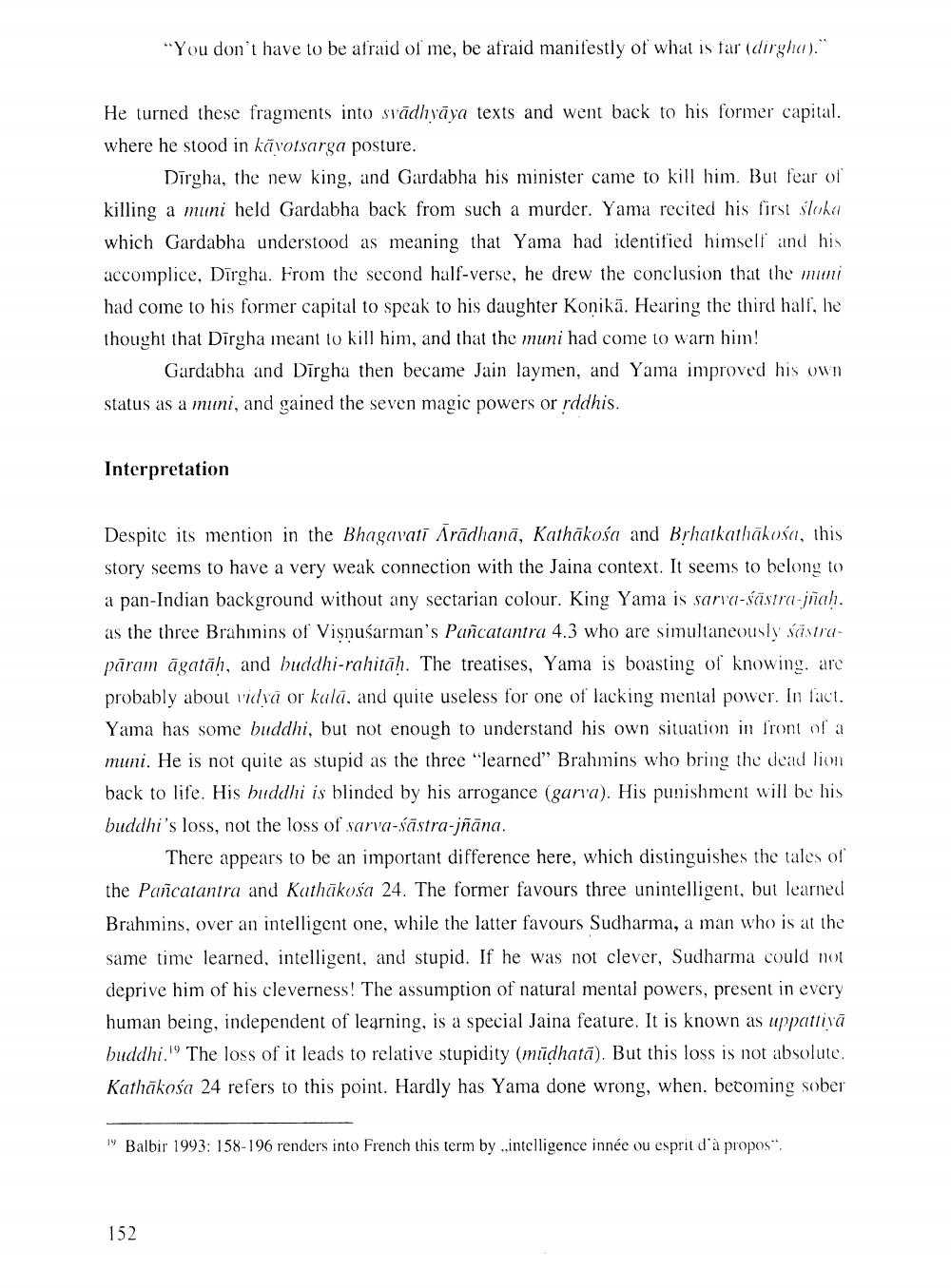________________
"You don't have to be afraid of me, be afraid manifestly of what is far (dirgha)."
He turned these fragments into svādhyāya texts and went back to his former capital. where he stood in kāvotsarga posture.
Dirgha, the new king, and Gardabha his minister came to kill him. But fear of killing a muni held Gardabha back from such a murder. Yama recited his first stoka which Gardabha understood as meaning that Yama had identified himself and his accomplice, Dîrgha. From the second half-verse, he drew the conclusion that the mini had come to his former capital to speak to his daughter Konikä. Hearing the third half, he thought that Dirgha meant to kill him, and that the muni had come to warn him!
Gardabha and Dirgha then became Jain laymen, and Yama improved his own status as a muni, and gained the seven magic powers or rddhis.
Interpretation
Despite its mention in the Bhagavati Ārādhanā, Kathakośa and Brhatkatlākoša, this story seems to have a very weak connection with the Jaina context. It seems to belong to a pan-Indian background without any sectarian colour. King Yama is sarva-sõstra-jnah. as the three Brahmins of Vișnuśarman's Pañcatantra 4.3 who are simultaneously sõstrapāram ágatāh, and buddhi-rahitīh. The treatises, Yama is boasting of knowing are probably about vidvā or kalā, and quite useless for one of lacking mental power. In fact, Yama has some buddhi, but not enough to understand his own situation in front of a muni. He is not quite as stupid as the three "learned" Brahmins who bring the dead lion back to life. His buddhi is blinded by his arrogance (garva). His punishment will be his buddhi's loss, not the loss of sarva-sõstra-jñāna.
There appears to be an important difference here, which distinguishes the tales of the Pancatantra and Kathākosa 24. The former favours three unintelligent, but learned Brahmins, over an intelligent one, while the latter favours Sudharma, a man who is at the same time learned, intelligent, and stupid. If he was not clever, Sudharma could not deprive him of his cleverness! The assumption of natural mental powers, present in every human being, independent of learning, is a special Jaina feature. It is known as uppattivā buddhi.'' The loss of it leads to relative stupidity (mudhatā). But this loss is not absolute, Kathākośa 24 refers to this point. Hardly has Yama done wrong, when, becoming sober
19 Balbir 1993: 158-196 renders into French this term by ,,intelligence innée ou esprit d' à propos".
152




